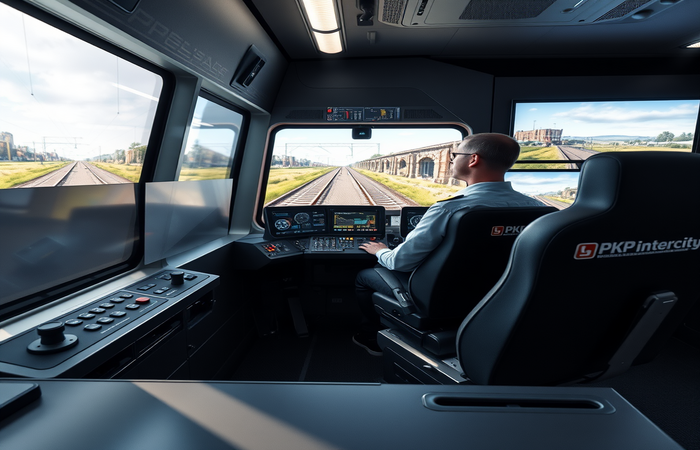COVID-19: Northern Rail’s Pandemic Response

This article explores the impact of the COVID-19 pandemic on UK rail operations, specifically focusing on the measures implemented by Northern, a major UK-based rail operator, to mitigate the spread of the virus and ensure the safety of both passengers and staff. The analysis will delve into the specific strategies employed by Northern, including the temporary closure of waiting rooms, alterations to ticketing procedures, and the adoption of a reduced timetable. Furthermore, the article will contextualize Northern’s actions within the broader response of the UK rail industry to the pandemic, highlighting the collaborative effort to adapt services and maintain essential transport links while prioritizing public health. The discussion will also examine the challenges faced by rail operators during this unprecedented period and the long-term implications for rail operations and passenger behavior.
Responding to the COVID-19 Pandemic: Northern’s Approach to Rail Safety
In the early stages of the COVID-19 pandemic, Northern, like many other rail operators globally, faced the critical challenge of balancing the need to maintain essential transport services with the imperative to protect passengers and staff from the virus. The company’s response involved a multifaceted approach that prioritized minimizing person-to-person contact and adhering to government guidelines on social distancing. This included, most notably, the temporary closure of waiting rooms at its stations. While acknowledging the potential inconvenience, this measure aimed to reduce the density of people in enclosed spaces, thereby lowering the risk of transmission. This decision was in line with similar actions taken by other UK rail operators, reflecting a coordinated industry-wide strategy to manage the crisis.
Changes to Ticketing and Passenger Flow
To further minimize contact, Northern implemented significant changes to its ticketing procedures. The company suspended penalty fares and opened all station gatelines, eliminating the need for passengers to interact with staff to validate tickets. While encouraging pre-purchase of tickets through various channels (stations, ticket machines, online, and mobile app), Northern acknowledged the limitations posed by the situation and temporarily accepted only card payments due to cash handling restrictions at some ticket machines. This demonstrated a flexibility that prioritized passenger convenience while adhering to public health recommendations. This adaptive strategy, albeit temporary, emphasized a focus on efficient and contactless passenger flow.
Reduced Timetable and Essential Services
Recognizing the evolving situation, Northern implemented a reduced train timetable. This critical decision focused resources on providing transportation primarily for key workers and those undertaking essential travel. This approach aimed to optimize service delivery, balancing the need for transport with the need for operational efficiency and staff safety during a time of significantly reduced passenger demand. This strategic approach, while impacting overall service frequency, ensured the continued operation of crucial transport links during a period of national emergency.
Collaboration and Industry-Wide Response
Northern’s actions were not isolated but rather part of a broader, coordinated response across the UK rail industry. Other major operators, such as Govia Thameslink Railway (GTR), FirstGroup, Greater Anglia, and Transport for Wales, also introduced reduced timetables and implemented similar measures to mitigate the spread of COVID-19. This collective approach demonstrated a significant level of collaboration and coordination among different rail companies, highlighting the industry’s commitment to maintaining a safe and functioning transport network under extraordinary circumstances. The sharing of best practices and the alignment of strategies were crucial in mitigating the overall impact of the pandemic on the rail system.
Conclusion
The COVID-19 pandemic presented an unprecedented challenge to the UK rail industry, demanding rapid adaptation and innovative solutions to ensure both the safety of passengers and staff and the continuation of essential services. Northern’s response, characterized by the temporary closure of waiting rooms, streamlined ticketing procedures, a reduced timetable focused on key workers and essential travel, and a strong emphasis on contactless transactions, exemplified the proactive measures undertaken by UK rail operators. These actions, taken in coordination with other companies, demonstrated a significant commitment to public health and a flexible approach to operational management. While the temporary measures implemented, such as the closure of waiting rooms and altered ticketing systems, caused some inconvenience, they were undeniably crucial in limiting the spread of the virus and protecting both railway staff and the traveling public. The experience gained from this period of crisis response will undoubtedly inform future strategies for pandemic preparedness and resilience within the UK rail sector and beyond, leading to more robust and adaptable systems for managing future unforeseen events. The successful balance achieved between maintaining essential transport services and safeguarding public health offers valuable lessons for future crisis management within the rail industry and other sectors relying on large-scale public transport.




